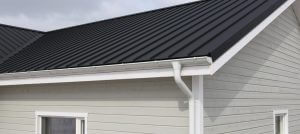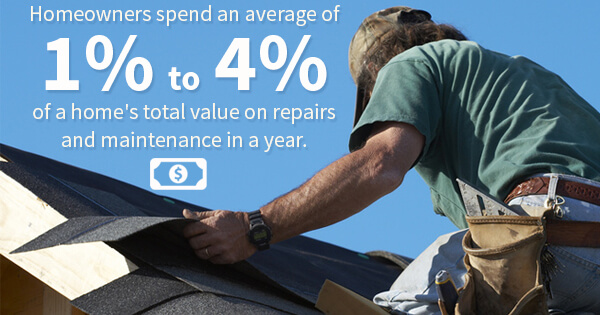Gutters are an interesting topic in roofing and construction, because while it seems everyone understands the general purpose of gutters, there are also several misconceptions out there (such as gutters being the cause of ice dams—they’re not), and even confusion as to whether or not gutters are truly necessary, and the extent of what they do.

What Gutters Do
Gutters are designed to redirect water away from your home and foundation. When clean and functioning properly, rainwater and other precipitation flows into the gutters, which then direct the water safely away from your home.Benefits
By moving water away from your home, you:- Prevent erosion. Without gutters, the rain would fall directly next to your house, eroding the soil.
- Protect your foundation. Worse than eroding the soil, which is a comparatively less costly fix, too much water seeping into your foundation requires a highly expensive fix, and can be dangerous.
- Protect siding. Rainwater is going to batter your siding regardless, but when additional water slowly drips off the roof, it can stain (and, depending on your type of siding, possibly rot) your siding, decreasing its life span.
- Prevent flooding. Directing water toward a drain or safe area eliminates puddles, which can lead to flooding.
Are Gutters Always Necessary?
There are no laws that require new construction to include gutters. And, although rare, depending on where you live and the type of construction, gutters may be nothing more than an added expense and maintenance project for you.In most cases, though, adding and maintaining gutters will be one of the wisest, albeit least glamorous, decisions you can make for your home.
Do I Need Gutters on My Home?
Especially in Michigan, it’s far more likely that you should have gutters on your home. While cleaning and maintaining gutters can be a dirty, tedious task, it’s well worth the effort to prevent potential costly, dangerous problems.However, there are a few reasons you might not need the added expense and maintenance.
If you live somewhere with extremely little rainfall (that is, not in Michigan), or if your home is surrounded by concrete, which protects the foundation, you may be fine without gutters. You might be able to get away without if your landscaping slopes downward or if you have a large roof overhang, but if you have either of those situations, we recommend you seek expert advice before making your decision.
In short, you almost definitely should have gutters on your home.
Do I Need Gutters Around the Entire House?
Unless your roof slopes in all directions, you probably don’t need your house surrounded with gutters. You do need them at the bottom of any slope, though. For instance, if your roof slopes two directions—toward the front and back of the house—with a peak in the middle, you won’t need gutters on the sides of the home, but should install them in the front and back. Your roof is already constructed to direct water down the slopes, where the gutters will then do their work. During a roofing consultation, our experts can guide you on your gutter system. Does it need to be cleaned? Adjusted? Completely re-installed? Every part of your roof, gutters included, is intended to prolong the life of your home. When you proactively clean and maintain the top of your house, the rest of the house runs much more smoothly.Check out these related articles:
Types of Gutter Designs: Pros & Cons
Subscribe to West Michigan Roofing's Blog





Comments